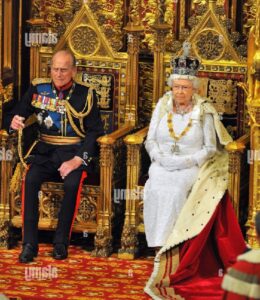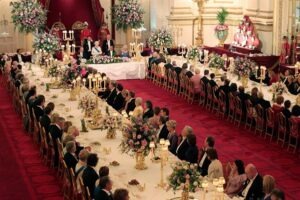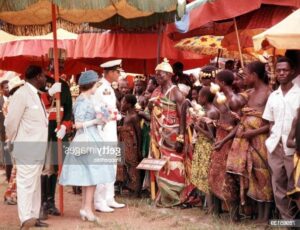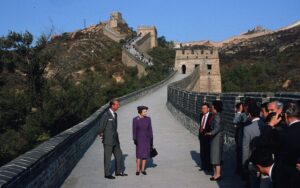The Duke of Edinburgh
Vocabulary
| duke | monarchy | long/longer/longest |
| baron | propensity | representative |
| royal | crown (2) | commonwealth |
| blurt | inherently | accompany |
| consort | dominate | good/better/best |
| mind | offensive | know/knew/known |
| ardent | behavior | appropriate |
| event | criticism | reincarnate |
| solve | remark | overpopulation |
| remark | scandal | contribute |
| legacy | generation | draw/drew/drawn (2) |
| riff | stereotype | drink/drank/drunk |
| native | pass (2) | conservation |
| booze | dismiss | constrain |
| guest | describe | unprecedented |
| honor | practice | throw/threw/thrown |
| spear | renegade | submarine |
| ghastly | off-hand | eat/ate/eaten |
| slit | observe | standing (2) |
| quip | lifelong | Cantonese |
| wing | manifest | rationalize |
| tame | rehearse | engagement |
| cuddly | headline | appearance |
| critic | portray | bad/worse/worst |
| benign | occasion | complicate |
| debate | condemn | justification |
| confine | reflect (2) | acceptance |
| trek | embroil | sense of humor |
| radical | bring up | manage (2) |
| argue | interview | bring to fore |
| fore | attempt | bring/brought/brought |
| humor | intensity | put your foot in your mouth |
| row (3) |



The longest-serving consort in the history of the British monarchy, Prince Philip, died aged 99 on Friday, April 9, 2021.
As the Duke of Edinburgh, Earl of Merioneth and Baron of Greenwich, Prince Philip served as a representative of the British Crown in Britain and the Commonwealth of Nations. He also accompanied Queen Elizabeth on royal visits.
And yet for many Britons, Philip was best known and remembered, not for his royal standing or public engagements, but his propensity to blurt out whatever was on his mind, including inappropriate — if not offensive — remarks.
For example, as an ardent environmentalist and conservationist, he told a group of German journalists in 1988, “In the event that I am reincarnated, I would like to return as a deadly virus, to contribute something to solving overpopulation.”
Remarks like those were a scandal even at the time and drew criticism.
But it was his comments about other nationalities that most complicate his legacy.
In 1995, Philip riffed on a British stereotype that Scots enjoy a drink, asking a driving instructor in Scotland: “How do you keep the natives off the booze long enough to pass the test?”
He shocked a Bangladeshi teenager in 2002 at a London youth club by saying the 14-year-old “looks as if he is on drugs.”
Such behavior was not confided to the British Isles; he was no less constrained abroad, as an honored guest.
In the same year, he asked a group of Aborigines while on an official visit to Australia: “Do you still throw spears at each other?”
That was far from unprecedented. On tour of China in 1986, he openly described Beijing as a “ghastly” place, and told British students there, “If you stay here much longer you’ll all be slitty-eyed.”
He also quipped, “If it has four legs and is not a chair, has wings and is not an aeroplane, or swims and is not a submarine, the Cantonese will eat it.”
In attempting to rationalize such behavior, observers say that despite being a lifelong royal who had married into the British monarchy more than seven decades ago, Philip was still inherently somewhat of an outsider — and a renegade.
This was manifested by his off-hand comments, untamed by the family’s carefully rehearsed public image, which frequently dominated headlines during his public appearances.
Philip’s justification (or excuse): “My generation, although reasonably well-schooled, is probably the worst educated of this age,” he said at an official occasion.
Critics have condemned the portrayal of Philip as a benign, cuddly uncle of the nation, and dismissing his generation’s acceptance of old-school racism, one reflected in the classical British sense of humor.
And how he never changed with the times.
They bring up his visit to Papua New Guinea in 1998, when he asked a British student who had been trekking in forests there, “You managed not to get eaten, then?”
Philip’s linked this South Pacific Island practice with the environmentalism he championed: “Cannibalism is a radical but realistic solution to the problem of overpopulation.”
Since Philip’s death, some on social media have argued that his more problematic remarks should be brought to fore.
Indeed, just weeks after, the royal family became embroiled in a row over racism following an interview given by the Duke and Duchess of Sussex to Oprah Winfrey, has added to the intensity of debate.
The prince himself once noted his expertise in “dontopedalogy — the science of opening your mouth and putting your foot in it” — something, he said, he had “practiced for a good many years.”



Questions
Queen and King. Prince Philip suffered from poor health for much of his life. True or false?
Princess and Prince. Did Philip spend all of his time in castles and palaces, drinking tea, reading books and riding horses?
Duchess and Duke. Prince Philip wanted to see London expand, and industry, technology and the economy continually grow?
Baron and Baroness. Prince Philip was always very courteous, polite and formal. Is this right or wrong?
Lady and Lord. Do you think the favorite drinks of Scotland are tea and coffee?
Bishop, Archbishop. Prince Philip believed everyone around the world were “modern” and “civilized”. Is this correct or incorrect?
Knight. Do you think Philip was a true racist, a White supremacist?
Nobility, Noble. Have you met people like Philip or heard of people like Philip?
Royalty. Are there stereotypes about different nationalities?
Monarch. Have there been kings, queens, princes and princesses in your nation’s history?
Emperor, Empress. What will happen to monarchies?
